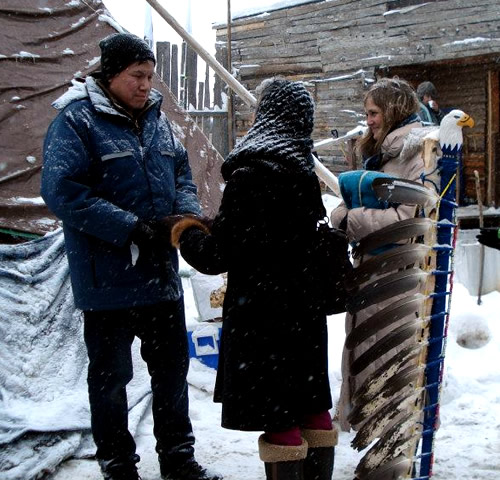Fasting – By Father Richard Renshaw
Theological Reflection – Sunday March 10, 2013
Richard Renshaw is a Holy Cross Father living in Montreal who has engaged in social justice NGOs and movements for many years. Occasionally he has also done a bit of writing and publishing. Richard is a member of Pax Christi, The Central America Working Group of the Social Justice Committee of Montreal, and several other groups.
Fasting is an ancient and widespread practice in the Judeo-Christian tradition. Patriarchs, prophets, kings all fasted. Jesus too is depicted as fasting.
Nevertheless, fasting is not limited to Christians or even to religious people. Hindus, Muslims and Buddhists fast. For Gandhi, it became an important social act, one he exercised with great care and only in very critical circumstances. On several occasions, his fasts were turning points in Indian history.
Fasting has both an ascetic and a social, even political, purpose. It focuses our energies; makes us more vulnerable, opens our bodies, minds and hearts. Because is such a serious act, it draws attention and calls others also to serious reflection. When Chief Theresa Spence fasted to demand a meeting between First Nations, government leaders and the Crown, she galvanized the country. Many of us joined her for at least one day. In this way we made ourselves part of the process of discerning our collective values and revising our national policies.
Jesus also fasted. The Gospel descriptions of Jesus fasting in the desert point to his preparation for ministry. He is learning to go beyond slavery to personal needs, beyond the need for adulation from others or for political power over others. He is focusing his attention on a serious turning-point in his life. The fast assists his effort to ponder decisions that will affect the well-being of everyone. This is political “resourcing” in the best sense
When today we fast during Lent by giving up a meal here and there, perhaps on Ash Wednesday or Good Friday, our action may simply be because the Church asks to get us ready for what is to come: Lent or Easter. However, we need to look more broadly. Today, more than a billion people do not have a choice about fasting. Half of these are children under 15, who have not known anything except fasting since they were born.
In that context, fasting takes on a deeper meaning: one of solidarity and transformation in a profound context of loving care for others. Our fasting in solidarity with other Christians and with the whole of humanity directs our attention to the different world that is possible because we have come together to make it so. In that sense also, our fasting is a marshalling of energies to focus attention on the transformation that has to take place if another world is to become reality. Fasting also provides an opening that allows the Spirit to take a larger place in our life and is, as a public act, an invitation to others to do the same. In this context, fasting, prayer and “almsgiving” (or solidarity, as I prefer to call it) are part of the effort to focus on renewing and deepening the shared engagement with one another that is directed by God’s Spirit and presses for change.
Most of us are still learning how to fast. We ponder how we can adapt our fasting to our limited physical capacity; we ask how we could integrate fasting into the daily routines of our life and faith and finally. We attempt to understand how our fasting is a public statement of our commitment to a world that God is calling into being.




